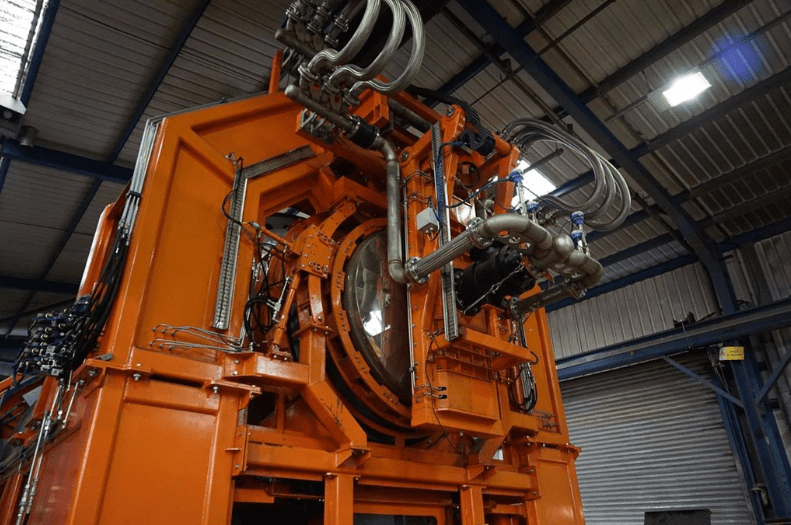AeroThermal Ltd has announced that its first Thermo-Pressure Hydrolysis (TPH) vessel was onstream processing bio-waste for the first time for a renewables company in the UK.
 AeroThermal a first for bio waste processing
AeroThermal a first for bio waste processing
The 65 m3 TPH is a key component at a new bio-waste anaerobic digestion site in the UK. The technology pre-treats food waste and other bio-waste organics prior to going to mesophilic anaerobic digestion.
Christian Toll, AeroThermal’s CEO, said: “This is a huge milestone in the handling of household and business organic waste in the most effective environmentally-friendly process imaginable.
“We have helped our customer to process thousands of tons of waste and at the same time recovering feedstock for anaerobic digesters for energy production.”
The TPH operates in cycles of 2.0 - 2.5 hours, each processing over 20 tonnes of bio-waste. The bio-waste, inclusive of packaging, is subject to a simple maceration process prior to transfer to the vessel.
From there it is sterilised under vacuum, followed by high temperature saturated steam while the drum rotates depending on the process requirements.
The cellulosic material is hydrolysed and after the process is complete, the product exits the vessel as a pumpable liquid. This is then separated into the predominant organic fraction which goes into anaerobic digesters, producing high yields of biogas, which is upgraded and injected into the national gas grid.
AeroThermal has demonstrated that using the TPH process before anaerobic digestion to pre-treat food and packaging waste, significantly increases the range of organic materials that can be digested while increasing methane generation and substantially reducing the amount of material requiring disposal.
Mr Toll said: “We are proud to have developed this system and we are looking forward to our TPH generating significant quantities of green energy from bio- waste.”
The TPH was installed in partnership with Jones Celtic Bioenergy (JCBE).
Dr Andrew Walsh, the Technical Director of JCBE, said that JCBE is very pleased to now have the unique TPH technology demonstrated in a full scale application where the future opportunities for the technology could truly change the face of the industry given the range of organic materials that can be processed that would otherwise be unavailable to digestion. A second larger facility is also currently under construction in Ireland.
For more information, http://joneseng.com/projects/project-categories/#bio-energy